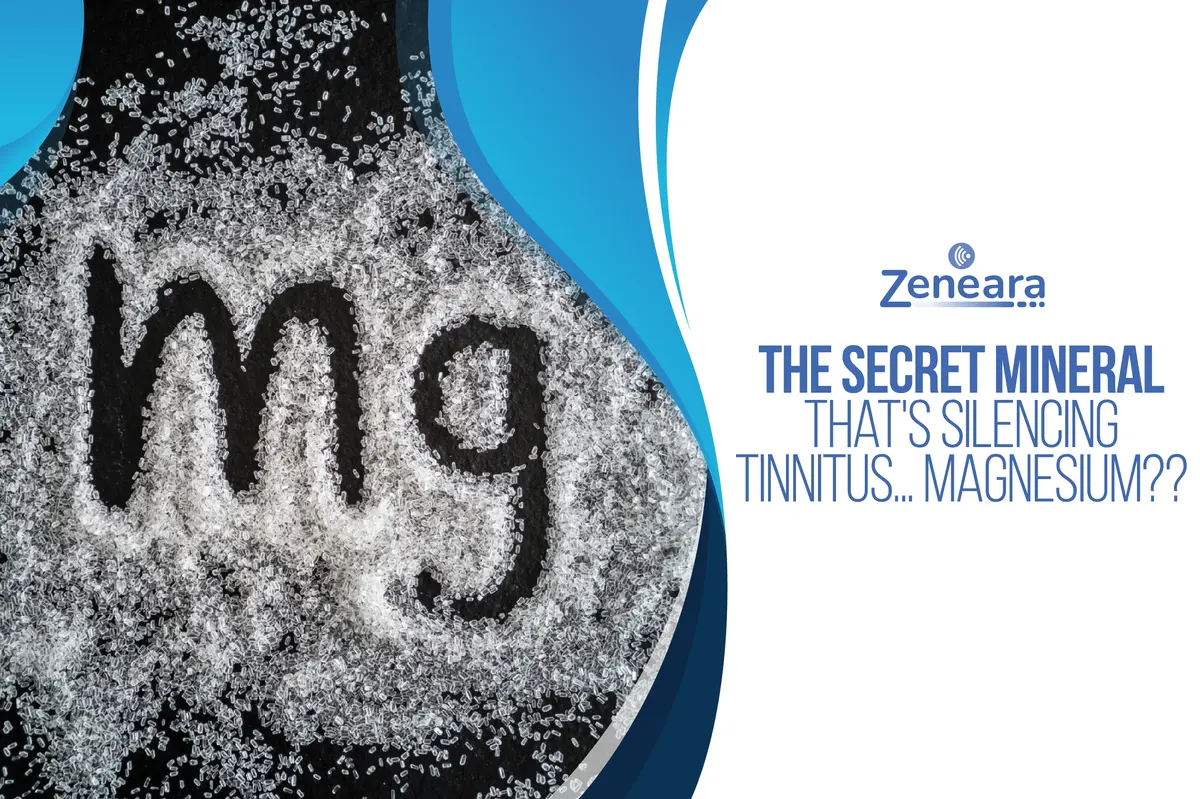Hey there, it’s James Barrett back again!
Did you notice it too?
Magnesium is gaining significant popularity lately, and for good reason.

This essential mineral, often overshadowed by its flashier counterparts like calcium and vitamin D, is emerging as a powerhouse for overall health, including its potential benefits for those suffering from tinnitus.
The Rising Interest in Magnesium
People are increasingly turning to magnesium for its multifaceted health benefits. From improving sleep quality to regulating blood sugar levels and supporting bone health, magnesium is recognized as a crucial player in maintaining well-being.
Recent studies have also highlighted its role in auditory health, particularly in relation to tinnitus—a condition that affects approximately 10-15% of adults worldwide.
If you’ve ever experienced that maddening ringing in your ears, have you tried magnesium for your tinnitus, or are you considering it?
I’d love to hear your thoughts and experiences. Share your experiences by replying to me.
Your insights could provide valuable information for others seeking relief from tinnitus.
So, how exactly does magnesium work its magic when it comes to tinnitus? Let’s dive into it now…
How Magnesium Might Alleviate Tinnitus Symptoms
Research suggests that magnesium could potentially help those suffering from tinnitus in several impactful ways:
Balancing Magnesium Levels
Many individuals with tinnitus have been found to have lower levels of magnesium. By increasing your magnesium intake, you might restore balance and improve your auditory health.
Protecting Against Noise-Induced Damage
Magnesium has been shown to protect the inner ear from damage caused by loud noises, a common trigger for tinnitus. A study indicated that subjects who took magnesium supplements before exposure to loud sounds experienced significantly less noise-induced hearing loss than those who did not.
Reducing Oxidative Stress
Magnesium helps combat oxidative stress in the inner ear, which can lead to nerve damage and exacerbate tinnitus symptoms. By decreasing this oxidative stress, magnesium may help alleviate the severity of tinnitus.
Regulating Blood Pressure
High blood pressure can contribute to tinnitus, and magnesium is known for lowering blood pressure. This regulation may provide additional relief for those experiencing tinnitus.
Supporting Nerve Function
Tinnitus is often associated with issues in nerve signaling within the auditory system. Magnesium plays a vital role in maintaining healthy nerve function, which may help correct signaling problems and reduce the perception of tinnitus.
Delicious Sources of Magnesium
To harness the benefits of magnesium, consider adding these magnesium-rich foods to your diet:
Green Leafy Vegetables: Spinach, kale, Swiss chard, collard greens, and mustard greens.
Nuts and Seeds: Almonds, cashews, chia seeds, pumpkin seeds, and sunflower seeds.
Legumes: Beans, lentils, peas, chickpeas, and black beans.
Whole Grains: Brown rice, quinoa, whole wheat bread, oats, and barley.
Fruits: Bananas, avocados, figs, and blackberries.
Fatty Fish: Salmon, mackerel, halibut, and sardines.
Dairy Products: Yogurt (especially Greek yogurt) and milk.
Herbs and Spices: Basil and coriander.

Dark Chocolate: A tasty treat that’s also packed with magnesium.
As magnesium continues to rise in popularity for its health benefits, its potential role in managing tinnitus is an exciting development.
While more research is needed to fully understand its effects, maintaining adequate magnesium levels through diet or supplementation could be a promising strategy for those seeking relief.






